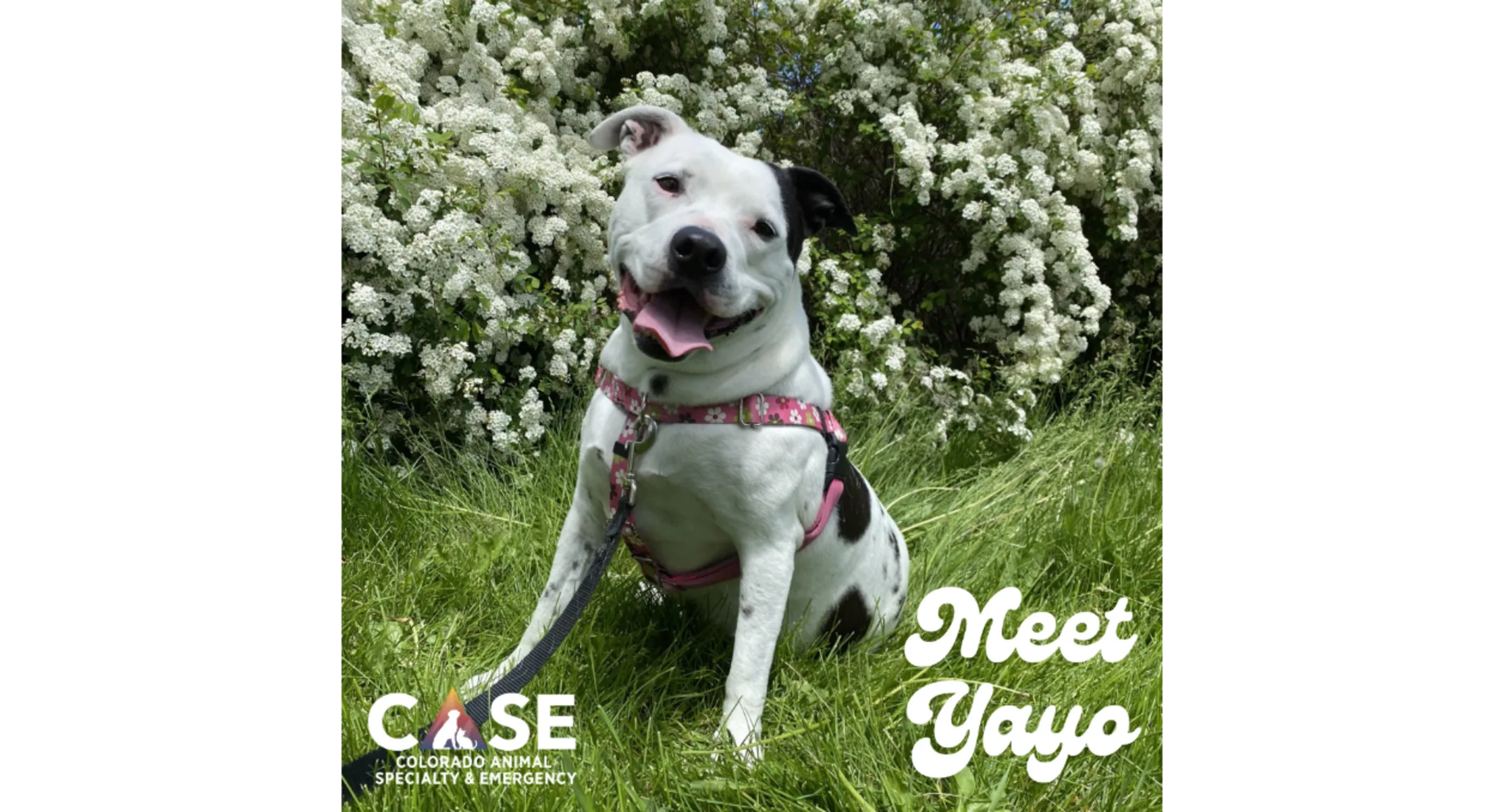Managing Canine AGASACA: A CASE Study in Advanced Radiation Therapy
News

Yayo, a 10-year-old female spayed mixed-breed dog, was referred to CASE for the acute onset of stranguria, pollakiuria, and a single episode of vomiting. Prior to referral, the referring veterinarian had performed a CBC, chemistry panel, urinalysis, and abdominal radiographs. Results revealed a stress leukogram, mild azotemia (creatinine 1.9 mg/dL and BUN 28 mg/dL), microscopic hematuria, and suspected sublumbar lymphadenopathy. A month earlier, a 3mm firm left anal sac mass was detected and cytologically confirmed to be Apocrine Gland Anal Sac Adenocarcinoma (AGASACA).
Upon presentation to CASE, Yayo's urinary signs had worsened, and she was unable to void her urine. The previously noted anal sac mass had grown to 2 cm in diameter. A urinary catheter was placed, and recheck lab work, a FAST ultrasound, and thoracic radiographs were performed. A CT scan of the chest and abdomen followed. Imaging findings were consistent with malignant neoplasia originating from the anal sac, with extensive regional lymphatic metastasis, resulting in significant impingement on the colon and urethra.
Using the CT images, a radiation treatment plan was developed, targeting both the primary tumor and the metastatic lymph nodes. A total dose of 25 Gy was prescribed, to be delivered daily, with the center of the lymph nodes receiving a boost to 32 Gy. Yayo was hospitalized for the duration of her treatments with the urinary catheter in place until her fourth of five treatments. The urinary catheter was removed before the fourth treatment, with frank hematuria still present. Her urinary stream improved over the following 24 hours, and she was discharged after completing her fifth and final radiation therapy treatment.
Two weeks after completing radiation therapy, Yayo returned for a recheck and was started on Palladia. Her stranguria and pollakiuria had completely resolved, and the only clinical sign noted by the owner was soft stools, likely a result of recent radiation therapy. Yayo is monitored regularly at CASE Medical Oncology for ongoing Palladia treatment and is reportedly doing well with no progression of her disease.
Canine AGASACA is a locally invasive tumor with a high metastatic rate, affecting regional lymph nodes in 26-89% of cases. Clinical signs may include perianal swelling, ulceration, paraneoplastic hypercalcemia, tenesmus, constipation, stranguria, and pollakiuria, with death often resulting from locoregional progression. Surgery is the primary treatment; however, complete excision is frequently challenging due to the size of the primary tumor or the location of metastatic lymph nodes. Radiation therapy has shown promise as an alternative approach for cases where surgery is not feasible. In dogs with macroscopic anal sac adenocarcinoma treated with stereotactic body radiation therapy (SBRT), studies report a 75-100% response rate, including both complete and partial responses. SBRT is typically delivered in 3-5 daily or every other day treatments under general anesthesia. Acute side effects are generally manageable and may include dermatitis over the primary tumor site and colitis leading to diarrhea. Late radiation side effects are typically cosmetic, such as skin pigmentation changes or hair discoloration, though more serious complications like rectal stricture or perforation are possible but rarely seen.
Yayo's case highlights the importance of a multidisciplinary approach in managing complex oncologic conditions like AGASACA. Through the strategic use of advanced imaging, radiation therapy, and targeted medical treatment, Yayo experienced significant clinical improvement, regaining urinary function and overall quality of life. Her case underscores the potential of radiation therapy as a viable alternative when surgical intervention is not an option. While continued monitoring and treatment are necessary, Yayo’s positive response demonstrates the benefits of an integrated treatment plan, offering hope for similar cases in veterinary oncology.
At Colorado Animal Specialty & Emergency (CASE), our team is dedicated to providing advanced, compassionate care for pets facing complex medical conditions. If you have a patient in need of specialized treatment, including oncology, surgery, or emergency care, we welcome referrals and are here to collaborate with you. Contact us today to learn more about our services and how we can support you and your patients.
